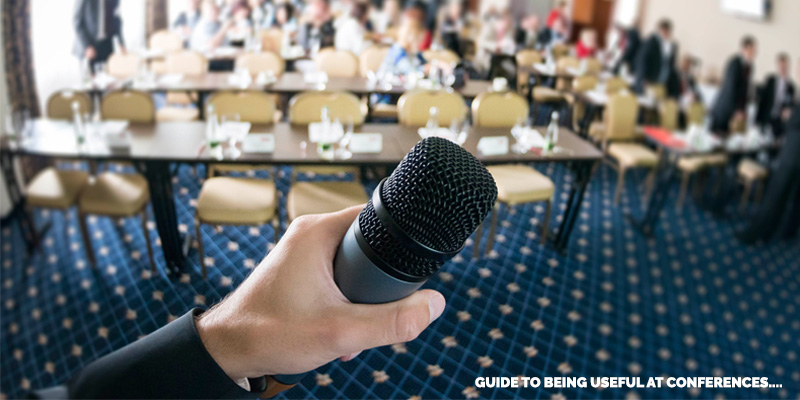
- Uncategorized
- by
- March 21, 2016
Guide to Being Useful At Conferences
Conferences have been designed as a platform for sharing ideas, knowledge, solutions to hurdles and creation of joint task force for research projects and emergence of ideas. Besides, conferences often tend to bring out the best in youth performances, inspire them and bring out the future scientists in them. This requires getting out the most from conferences by being useful to the same:
- By attending a conference, one can feel what professionally rewarding can be defined. Conferences do not merely serve the purpose of socializing with colleagues, from other institutions engaged in projects in relevant fields; these serve as platforms to bridge gaps between such institutions and projects, and students who are eager to learn regarding the advancements in their fields.
- Scientists and researchers are normal people; like every other, many researchers are introvert, while just the opposite can also be seen in many scholars. This requires dealing with the exact same approach as is used towards people we meet in day to day lives.
Leading institutions and individuals who specialize in organizing such academic conferences, often tend to provide with a list of gestures and actions, which will allow one to be most useful during a conference:
- Gather as much information as possible, regarding the fields, areas to be discussed on, works of guests, background research on researchers like kind of research, principles of the research, etc. This requires a lot of reading, going through previous conferences on relevant fields, and papers published.
- If the papers are technology based, students or attendees should have a clear idea regarding the subject. Conferences also call for interaction, so any kind of questions (as long as they remain on the core of discussions) will be taken up and addressed to.
- Every individual who are part of the conference should take up the initiative to act as a media; that is spread as much knowledge as possible by means of social networking platforms and micro blogging platforms. Also, since organizers generally tend to provide free Wi-Fi services, uploading files of different formats like images, texts, and small videos is not an obstacle.
- Conferences are looked forward to by people from all segments of a field, in order to increase contacts which might help in professional fields. It should therefore be more of a duty to walk up to everyone and interact, without taking into consideration the nature of those people.
- Conferences are almost always packed with researchers, delegates from research institutions and professors, who are qualified enough to skip the basics of any field, and go for higher discussions. Students should thus try to keep at par with them by going through the basics beforehand, and by gathering as much knowledge as possible before attending a conference.
- Attending a conference is sure exciting, but, it should not deviate anyone from asking the right questions meant to be asked for that respective platform. Conferences are almost always followed by workshops, which, are in their own right, more purposeful than lecturing sessions.
- Posters, demos and paper sessions often form a part of a conference. These are actually quite fun to look at; scientists put up their works in a concise way to be viewed by the people. This area allows people to view the actual models and designs.
- After hours of a conference are most crucial for every stakeholder; increasing contacts, exploring the option for joint projects, creating contacts which will further bolster professional sphere, all occur in this period. A little initiative can reap enormous fruits later on.
- It is a common occurrence to be accompanied by co-workers; but this is not necessarily a good thing. Sphere for interaction may get limited, and you may miss out the key points being discussed in the conference itself.
